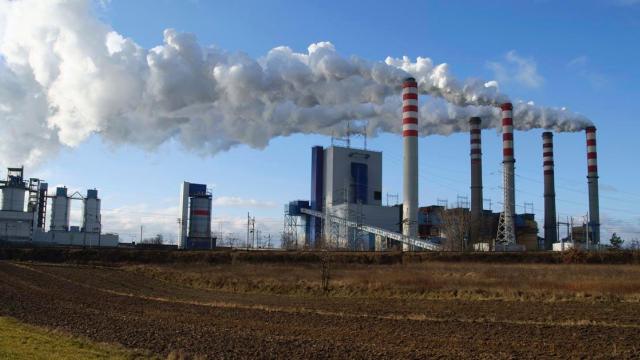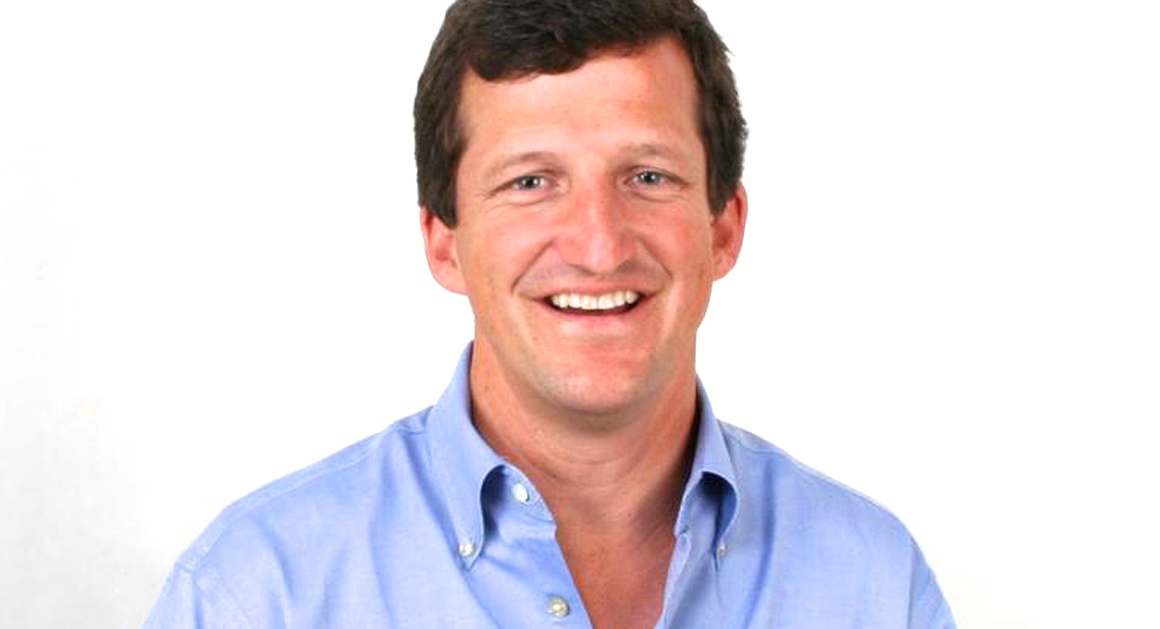
A Republican entrepreneur is putting a whopping $175 million behind a campaign whose message will have some party stalwarts seeing red: The GOP needs to deal with climate change.
North Carolina businessman Jay Faison will launch a social media and online advertising blitz, backed by state and national digital advocacy efforts and a series of strategic grants, as part of a $165 million campaign run through the ClearPath Foundation. The aim is to get the Republican Party to shift its skeptical view of climate change and green energy, topics that usually fall to the bottom of its list of priorities when they don’t generate outright opposition among conservative voters.
In addition to his public education effort, Faison is putting an additional $10 million of his money into a separate political advocacy operation, using the same nonprofit tax status designation as groups like President Barack Obama’s Organizing for Action, Karl Rove’s Crossroads GPS and several tea party groups. He will also try to attract additional outside funds for that operation.
On Tuesday, Faison, who made a fortune from the sale of his Charlotte-based audio-visual equipment company SnapAV, will unveil the first stage of his ClearPath campaign, including spending $40 million through 2016 to persuade moderates and conservatives to join the fight against climate change — but relying on market-based principles rather than government mandates.
“I always felt a little alone out there as a Republican, and so I started ClearPath to create a dialogue around this in a way that hadn’t been done before and sort of be part of the solution,” Faison said in an interview, adding he’d like to see the party’s candidates debate the solutions to climate change, not the science. “We think that there are real Republican solutions to the problem.”
It’s not an issue that tends to sit well with Republican leaders. Among the GOP candidates for president, only long-shot Sen. Lindsey Graham of South Carolina has been consistent in saying that he believed human activity was a cause of climate change. He has vowed to try to persuade Republicans to expand the party’s environmental platform, but he’s currently polling in the low single digits.
Green-minded Republicans may gravitate toward Jeb Bush, who will make his own candidacy official June 15 and has acknowledged climate change as a problem. But he has also echoed conservatives in decrying the “arrogance” of those who say climate science is settled.
The challenge for Faison will be finding a receptive audience inside the party that has focused on fighting Democrats’ climate change policies or rallying voters against what it calls President Barack Obama’s “war on coal.”
“What’s important to remember is that [climate change] doesn’t really register as an issue with many Republican primary voters,” said Eli Lehrer, who helped form the free-market think tank R Street Institute after bolting from the Heartland Institute over its public skepticism of climate science.
“It isn’t that they are denying anything. They just don’t care that much. I don’t care that much. It’s unlikely that I will vote primarily where someone stands on climate change,” he said.
Faison said he’s trying to change that perception — or at least not let Republican apathy about climate change stand in the way of getting the party to join the debate over solutions that has been dominated by Democrats. And that means focusing on solutions in the free market that will appeal to conservatives.
“I think everybody agrees that there’s [climate] risk. And if there is risk then I think we need to move on to solutions which are right in front of our nose,” he said.
A self-described Christian conservative from a prominent Charlotte Republican family, Faison also supports school choice, tort reform and small government, and he has disdain for Obamacare — all positions that put him solidly in the Republican camp and contradict claims that he’s a Republican In Name Only because of his climate outreach.
But as an avid hunter and fisherman, he had long followed climate change issues, and after the sale of his company, Faison decided to turn his attention to the effort.
Tuesday will mark the official rollout of ClearPath.org — a website featuring hundreds of pages of studies and other data including from the National Oceanic and Atmospheric Administration, NASA, Massachusetts Institute of Technology and the corporate consulting firm McKinsey to educate Republicans about climate change. The ClearPath foundation also has an investment portfolio that includes a seven-figure solar energy investment.
There is a wealth of polling suggesting a lot of Republicans do see climate change as a problem that should be addressed through cleaner forms of energy, if not through Environmental Protection Agency and other regulations.
“There’s a lot of center-right Republicans that feel like they don’t have a voice in this issue, and surveys would say they’re eager to share this information to bring other people along with them,” Faison said. “Even in small percentages, that’s in the millions.”
Yet, conservatives remain an outlier. An Earth Day-timed Gallup poll found fewer than 4 in 10 self-identified conservative Republicans — 37 percent — think that climate change will occur in their lifetime, while 19 percent believe it will affect future generations. A plurality — 40 percent — responded that climate change will never happen.
Faison advocates preventing utility monopolies from standing in the way of rooftop solar and other green electricity sources, rather than relying on measures such as the Obama administration’s planned greenhouse gas controls for power plants. Rooftop solar has been championed by tea party groups in Georgia, but it’s an effort that will put Faison in conflict with megadonors like the Koch brothers.
Indeed, the trend among Faison and other green Republicans is to showcase ideas that are or should be pretty well established within the GOP policy framework.
“The problem with Republicans — a lot of Republicans, not all — they just don’t understand the issue,” said Andrew Sabin, owner of a New York-based precious-metal refining business and a longtime GOP donor. “If they saw some of the things they could do that wouldn’t affect the economy and in fact increases jobs and cleans the air, they’re all for it.”
Sabin has pitched GOP presidential candidates on the need to invest in new nuclear plants, wind and solar power, an updated power grid and more research on capturing carbon and storing it — as well as the need to confront the changing climate and rising sea levels.
And though the candidates he’s spoken to have more or less been receptive, Sabin said that doesn’t mean it will translate to anything more.
“You don’t know as a donor whether they really agree or are just patronizing you,” said Sabin, who plans to meet with Carly Fiorina this week.
Faison will target his efforts to local markets and specific demographics, such as Roman Catholics and politically active Floridians, by using advertising, social media and news outlets. And ClearPath will use digital engagement tools to generate feedback from its audience, and put money into grants and think tanks such as the Niskanen Center and R Street.
But breaking through the noise won’t be easy. On the left, Tom Steyer’s NextGen Climate public education campaign has poured money into an operation against Republicans in a bid to elect more green Democrats into office. And the hundreds of millions of dollars flowing from the Koch brothers still attract Republican candidates looking to shore up their conservative street cred.
Only 18 percent of likely Iowa Republican caucus participants believe GOP presidential candidates should “spend a lot of time talking about” climate change, according to a poll conducted late last month by Bloomberg Politics and The Des Moines Register. The next lowest issue polled was income inequality, at 36 percent.
But if a major candidate can put environmental issues on the radar, it could resonate particularly with younger voters in the party, and Sabin is hopeful that Bush can ultimately carve out a Teddy Roosevelt-type position that could broaden the GOP’s base.
“If Jeb Bush comes out with a good environmental policy, he’s going to attract young Republicans for sure, and across the aisle to Democrats and independents it’s going to be a huge help,” Sabin said. “If he’s our candidate, there is no Democrat in this country who would touch him if he had a good environmental plan.”
That emphasis on winning more of the youth vote through a green energy strategy is also the goal of Young Conservatives for Energy Reform, founded by Michele Combs, a veteran Republican operative and daughter of Christian Coalition President Roberta Combs.
“I see the tide turning,” Combs said recently. “The young people and the young generation, they want this issue and they understand this issue.”
Faison has so far has donated $50,000 to Bush’s Right to Rise PAC, and $25,000 to Graham’s campaign. But he hasn’t picked which candidate he intends to back yet.
“This is an issue that … they haven’t clearly articulated yet,” he said.
Bush has acknowledged that the climate is changing, but has said the science is unclear on what is causing it and that the issue isn’t the highest priority for him. He’s been critical of Obama’s regulatory efforts to use the Clean Air Act to tighten emissions.
Sabin, a friend of the Bush family, may be a notable exception among Republicans donors in openly pressing for his environmental priorities, but his efforts may encourage other party funders, who may have been quietly working for greener policies.
“There are a very small handful,” said Rob Sisson, president of ConservAmerica, formerly Republicans for Environmental Protection. “If they decide to come together, it could attract others that we either have not had contact with yet or are not on the radar screen yet.”
3 WAYS TO SHOW YOUR SUPPORT
- Log in to post comments
















